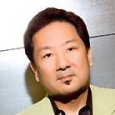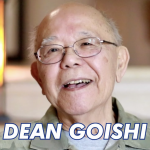This guest post is by Ace Robinson, MHL, MPH, Director of Strategic Partnerships at NMAC.
These are just a few words that instantly come to mind when thinking about the one Doctor I. Ronald Simmons, a committed strong Black gay man who changed our world not by singular leadership but by inspiring us into collective action and taking responsibility for one other’s wellbeing. Dr. Simmons dedicated his life to ensuring the Black LGBTQ+ community saw its own value and celebrated all the beauty it held. He made sure that Black gay men understood their power and how to channel that power into improved behavioral health which would be the key to our survival against all odds including HIV.
When Ron transitioned last week, we lost one of our greatest heroes ever to lead the HIV movement. He made an indelible mark. As an educator, he taught us about the historical legacy of African LGBTQ+ people as integral leaders within their communities. As an advocate, Dr. Simmons reminded us to view the world with our whole selves by not solely focusing on Black-only or LGBTQ-only issues. As a leader, Ron encouraged us to find a way to support each other against all odds.
As a famed member of the Black gay movement, Ron led by example by unapologetically uplifting the Black gay male experience. He would never tolerate nor was he ever drawn to the White Boys-Only Club of the Gay movement nor the heterosexist-leaning Black Liberation movement. He, therefore, brought his energy and talents to invest in the lives of Black gays and lesbians. Dr. Simmons refused to allow HIV to erase the legacies of LGBTQ+ Americans of the African Diaspora. Our society works overtime to silence Black gay men and not recognize our outsized contribution to the American experience. Naturally, Ron came to eventually lead the storied Black gay AIDS organization based in Washington, D.C. known as Us Helping Us or UHU.
UHU had one purpose: to give Black gay men hope to survive and ultimately thrive by overcoming health challenges, e.g., HIV, through a vision of inclusiveness. His leadership helped people improve their health outcomes. Ron legacy has not only enhanced the lives of individuals impacted by HIV, but entire organizations with the goal of reducing the impact of HIV. To be clear, the Black gay men at NMAC honor the road that he cleared for us to support our community. Charles Shazor, Jr. is a shining example. He shared, “Ron led by example displaying how to effectively create, demand, and implement structural change to positively impact the lives of gay Black men living with HIV…coming from a background of substance use and sex work, he allowed me to get my career started working in HIV leadership.”
As Black gay men, opportunities for growth are limited. Addressing the constant barrage of racism and homophobia can be overwhelming. There are too few people like Ron in this world. NMAC’s Anthony Anderson opined, “I met Ron while searching for my identity as a youth living with HIV and as a new member of the Black DC gay community. He educated me on his experiences living and working during the AIDS epidemic and sewed into my life in ways he will never know.” Our Terrell Parker concurred: Dr. Simmons took any opportunity to pour into you or enlighten you. He was not a man who was afraid to challenge you. His challenges were meant to help you grow, to expand your mind, to be a better servant in this work.”
Thanks in large part to Dr. Ron Simmons, our collective movement has become the gold standard for so many other initiatives for one reason and one reason alone: our movement harnesses the collective work of not just those of us here today, but also those who have come before us. Anthony concluded with a message for all of us who knew and loved Ron. “While we are all deeply saddened, his legacy is a reminder of all the work that has been done and the work that still needs to be done. Ron left us a vision and it is going to take all of us to make it come alive. That is the best way to memorialize a man like Ronald Simmons.”








Comments
Comments